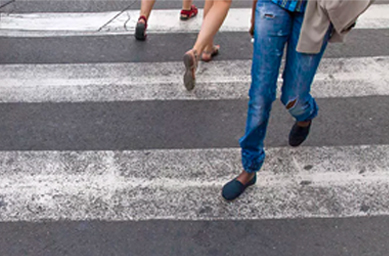Hanging out by the pool can be a great way to beat the heat, but pools come with a high number or risks all pool-goers should be aware of. If pool owners fail to take proper care of the pool or surrounding area it can be easier to sustain injury, or if it isn’t gated off properly it can pose a high risk for young children. Knowing the risks and how to avoid them is key to keep you and your family safe around the pool.
Below, we’ve compiled a list of the most common pool-related injuries, along with a few tips for how to prevent them.
Drowning
An average of 390 children, under 14 years of age, drown in pools and spas in the U.S. each year, according to Pool Safely, a U.S. government website. Drowning is also the leading cause of unintentional death for children aged 1-4 years. Unfortunately, nearly half of all water-related injuries occur near a residential pool, so whether you’re at your own pool, a friend’s, or a neighbor’s, stay on guard.
To prevent unintentional drowning, especially for children, always be sure your pool, or the pool you are using, is gated off and inaccessible to children. Always be sure children have an adult (who can swim) to watch them when to are around a pool, and that they wear floatation devices until they are comfortable and competent enough to swim on their own.
Diving Accidents
Most diving accidents don’t have anything to do with diving boards, but are actually caused by the diver jumping into shallow water. Most diving incidents result in head or neck injuries because the arms, head, or neck hit the bottom of the pool, causing them to snap back, injuring the diver. Neck injuries are very serious, potentially leaving the diver paralyzed. A “no diving” policy is always best, especially because most residential pools aren’t deep enough to dive into safely.
Slip and Fall
If you haven’t heard this directive in-person, you’ve certainly seen it in a movie: do not run by the pool. Pool areas are wet, and therefore slippery. Slipping can cause you to strike your head on the floor, cause possible concussion, break an arm or wrist while stopping your fall, or break a leg. If a young child slips, he or she may fall into the pool, causing them to panic and forget their swimming their learned swimming skills. Or if they are not wearing their flotation device, they run the risk of drowning. There have also been cases of people falling on their head near the edge of a pool, knocking themselves unconscious, and falling into the pool, where they drown.
Most public pools have textured surfaces around pools to prevent slips and falls, but few residential pools have these safety features. Either way, accidents are still bound to happen. The best way to prevent slip and fall accidents in the pool area is to encourage children, and adults, to walk in the pool area, and to exercise caution.
The best way to keep safe is to prevent an accident before it happens. Whether you are an avid sunbather or a “fish out of water”, be sure to practice pool safety for the sake of yourself and your children.
If you or a loved one sustained an injury in a pool accident, contact Todd Miner Law®️ for a free consultation.








